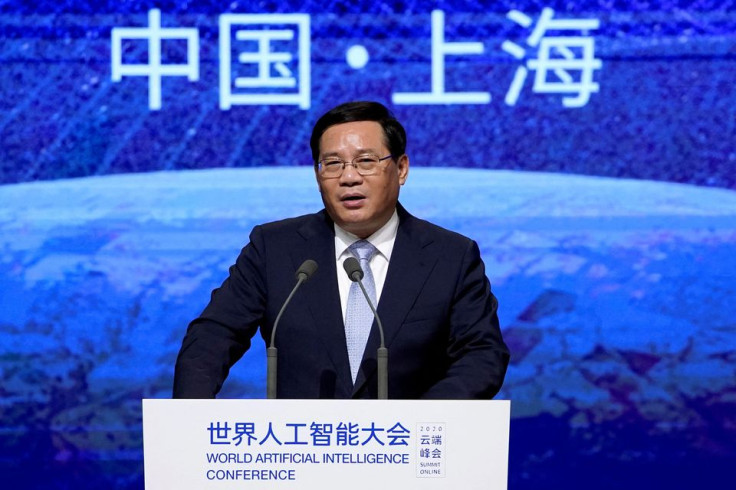China's Next Premier Li: A Xi Loyalist Who Oversaw Shanghai Lockdown
Li Qiang, who oversaw Shanghai's grinding two-month COVID-19 lockdown this year as party boss of China's commercial hub, is on track to become China's next premier after President Xi Jinping unveiled a new governing body packed with loyalists.
Li, a close ally of the newly re-appointed Chinese leader, was elevated to the No.2 position on the seven-man Standing Committee on Sunday, putting him on track to take over the economic management role.
Current Premier Li Keqiang, a more reform-minded voice, will step down in March after the maximum two terms.
"Honestly, I did not have him on my list," said Joerg Wuttke, president of the European Union Chamber of Commerce in China, who had expected the reform-minded Hu Chunhua or Wang Yang to be tapped as the next premier.
Both were left out of the new 24-member Politburo.
"Well, it seems to be that they feel confident doing it their way and it remains to be seen if it works out," he said.
Li became a target for some of the social media ire that made it past censors during a lockdown that caused major disruptions to Shanghai's economy and drew ire from many of its 25 million residents.
Li would also be the first premier since 1976 not to be promoted from vice-premier, Neil Thomas, a senior analyst for China and Northeast Asia at the Eurasia Group, said on Twitter.
"Tradition is that somebody who becomes premier must be vice-premier before - this is totally against party convention," said Willy Lam, senior fellow at the Jamestown Foundation, a U.S. think tank, who described Li's performance in Shanghai as mediocre.
"We have not seen Li Qiang introduce any market-oriented reforms," said Lam.
A Chinese fund manager who declined to be named said general market feeling towards the new leadership lineup is negative.
"Hardly anyone in the line-up has profound understanding of the economy," he said. "Li is already seen as being better than the rest."
STEPPING STONE
As the top official in China's commercial hub and its most populous city, Li's position as Shanghai party chief has traditionally been a stepping stone towards a top-two role in China's power structure - including for Xi Jinping himself.
While numerous local-level officials have seen their careers derailed by coronavirus outbreaks on their watch under China's strict zero-COVID policy, they did not share Li's stature or history with Xi.
A native of Zhejiang province, Li was Xi's chief of staff - a role for the most trusted confidants - from 2004 to 2007 when Xi was party chief of Zhejiang.
Li's promotion to governor of the economic powerhouse province in 2013, the year Xi became president, meant he had been put on the path by Xi to be groomed for bigger roles.
In 2015, Li accompanied Xi on a visit to the United States to meet then-President Barack Obama. In Seattle with Xi, Li gave a speech calling for more cooperation between Zhejiang and U.S. firms.
When Xi removed several officials in Jiangsu province as part of a corruption crackdown and needed someone trustworthy to fill the political vacuum, he sent in Li in 2016, elevating him to provincial party chief.
During Shanghai's lockdown, Li repeatedly appeared in state media visiting residential compounds and hospitals.
Making his rounds, he reiterated the COVID party line: "We must resolutely implement the spirit of the important instructions by Party Secretary Xi Jinping and steadfastly persist in the dynamic-zero approach".
Li was also known for pushing greater economic integration of the Yangtze River Delta region as well as overseeing an expansion of the financial hub's free trade zone that now houses U.S. automaker Tesla's China factory as well as a slew of semiconductor and advanced manufacturing firms.
One Shanghai-based entrepreneur said he was surprised when Li responded to an unsolicited letter seeking help.
"He attended to our case and cleared the unnecessary regulatory obstacles for us, even though we were just a small private company," said the business owner, declining to be named given the sensitivity of discussing politics in China.

© Copyright Thomson Reuters 2025. All rights reserved.





















